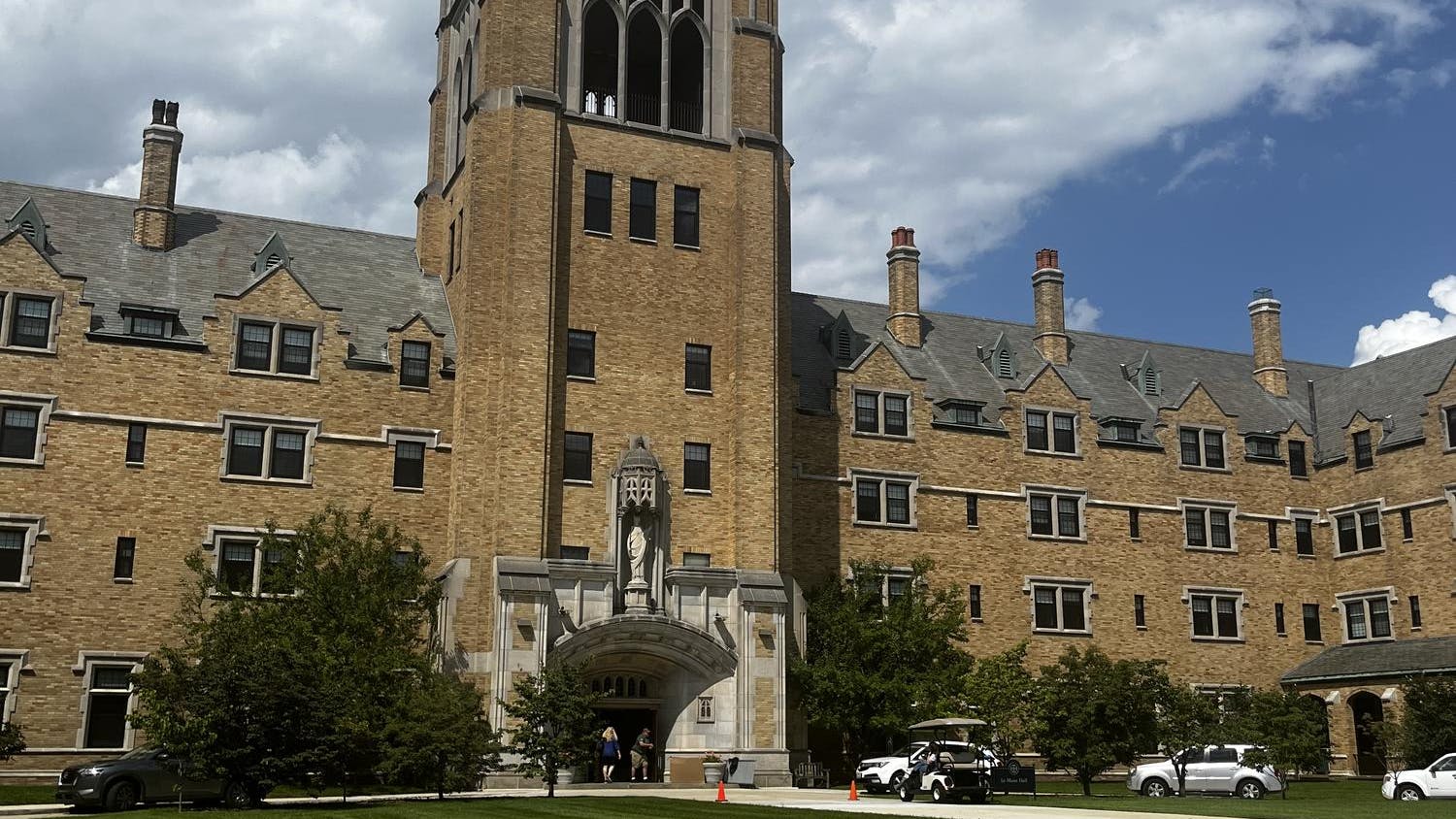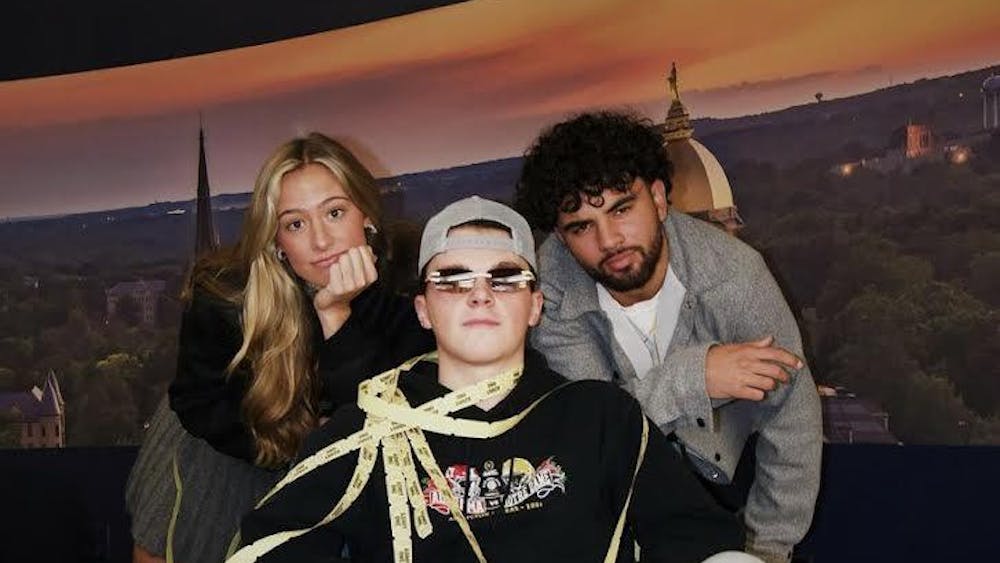Though his term as student body president has officially come to a close, senior Pat McCormick will take his leadership to Washington, D.C., when he attends the National Campus Leadership Council (NCLC) Summit this weekend.
McCormick, who serves as a member of the NCLC Executive Committee, said the conference represents the culmination of his collaboration with both the Notre Dame community and collegiate student governments. The goal of the summit is to form a nationally unifying student government entity that promotes "advocacy power for individual campuses and campuses across the country."

"Over the course of the 2011-2012 term, we as a student government collaborated with other schools to form a coalition of campuses nationwide in partnership with the NCLC and its staff of young professionals," McCormick said.
The summit will bring student leaders together through sessions at the White House and American University, he said. The representatives will address issues in financial aid, campus sustainability, college accessibility and youth unemployment.
Participants will also meet with policymakers to directly influence future legislation on these matters, McCormick said.
"This [summit] can serve as a means by which students nationwide can come together to confront shared challenges and advance broader national policy goals that are consonant with the concerns of individual student bodies," he said.
The conference will facilitate continuity between past and present Notre Dame student government administrations, as current student body president Brett Rocheleau, a junior, will accompany McCormick to the nation's capital.
"[One thing] consistent ... is our commitment to the idea of working simultaneously on issues of convenience and confidence," McCormick said. "We hope that's an example of the kind of student government we've tried to build, one that's bigger and more capable of working on these issues simultaneously."

Rocheleau said the conference's breakout sessions and speakers will reflect the common interests of peers nationwide and allow for the exchange of ideas on these topics.
"There will be a lot of different perspectives on different issues," he said. "Maybe one student government did something that worked that we can try to implement at Notre Dame. Hearing solutions to issues will be a great resource."
Expressing the opinions and concerns of Notre Dame students is key at a national conference, Rocheleau said.
"Our main goal is to advocate for our students on a national level by talking about issues Notre Dame students feel similarly about, like paying for college and employment after graduation," Rocheleau said. "There are related policies being worked on in Congress that may not get a lot of press ... but there's power in numbers, and if we get a lot of people behind something, we can make a big difference."
The advocacy for student interests takes on a more influential role within the NCLC and paves the way for the nation's future college students, McCormick said.
"This is a way to continue to amplify the voices of students who have advocated in the past and can now take them directly to policymakers in a more institutionalized way," he said. "[The NCLC] is an infrastructure for future student governments to have a way into the White House, and we hope it will provide a way for students at Notre Dame to continue to engage national policymakers on issues of concern to our student body in the future."
McCormick engaged in this advocacy in December 2010 when he represented student government at the White House and advocated for Notre Dame's Playing for Peace initiative. He and other campus leaders spoke with Samantha Power, the senior director of multilateral affairs for the National Security Council and one of the architects of the Obama administration's policy surrounding the Sudanese Comprehensive Peace Agreement.
McCormick said he and student government initially became involved with the NCLC through an advisory role with NCLC staff members. The team provided feedback for the development of the organization, which currently represents more than 8 million students on 150 college campuses nationwide.
In early 2012, the NCLC selected McCormick to serve on its Executive Committee, which consists of ten student body presidents who communicate with other student body presidents at universities in their geographical regions, McCormick said.
"We saw [the Executive Committee] as a valuable platform to advance our broader goals and exercise full determination of what we choose to advocate for and work toward on our own," he said.
Although the conference focuses on current issues and concerns of U.S. college students, McCormick said it sets a precedent for future leadership of the country.
"The challenges we face as a country will be shouldered by us," he said. "Whether it's the national debt or the energy crisis ... this will be an opportunity to work with other campus leaders nationwide and begin to articulate ways in which students can contribute to national policies."












